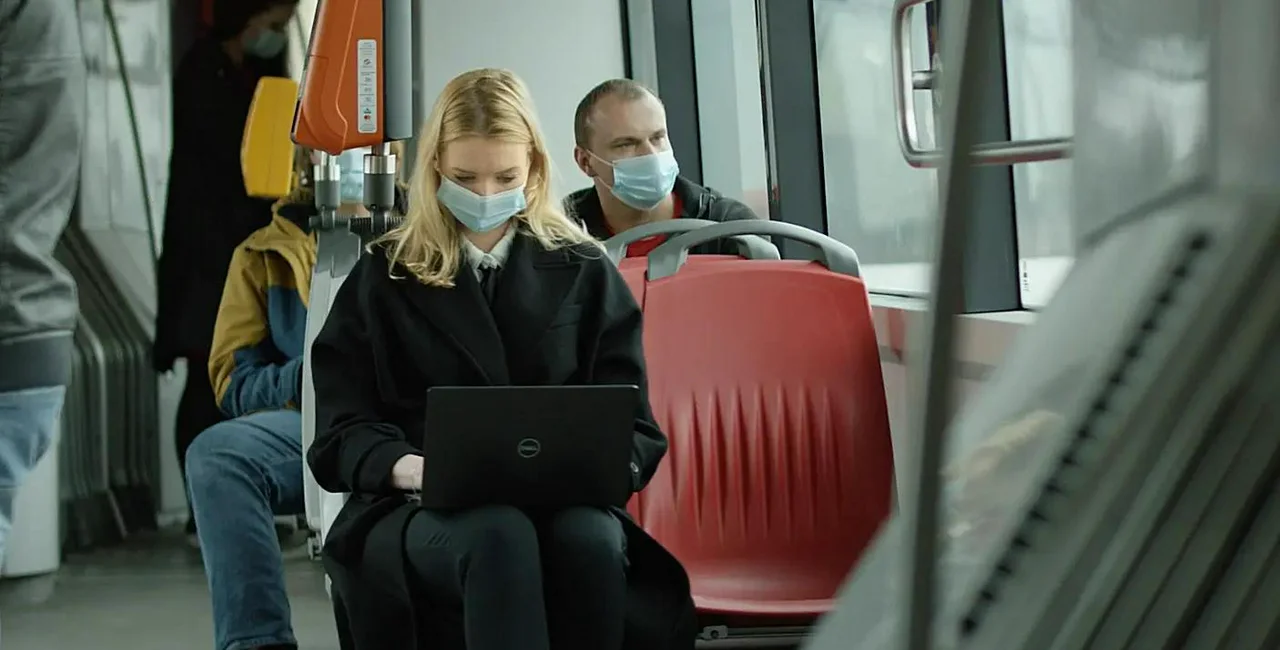Using Prague’s public transit is safe. That is the message of a new campaign by the Prague Public Transit Company (DPP).
The Safe in the City, Together in the City (Městem bezpečně, městem spolu) campaign points out what DPP says are unfounded fears of traveling by public transport during the coronavirus pandemic. The campaign’s main goal is to dispel these fears so passengers who used public transit before crisis will return.
The campaign, which runs to the end of January 2021, will have TV and radio spots, online banners, advertorials, and lit posters in public and at shopping centers. The cost of purchasing advertising space for the campaign is approximately CZK 6.5 million. The graphics and texts were prepared by West Media Communication.
Public transit is presented as reliable, safe and fast for trips around Prague. The campaign’s video spots and visuals show a parallel between the morning hygiene of an ordinary person with the preparation and thorough cleaning of public transport vehicles before they set off on their route.
With a new campaign, DPP wants to assure people there is no need to worry about coronavirus infections in metro cars, buses or trams. DPP cleans all Prague public transport vehicles in the depot or garage, in most cases twice daily. It regularly disinfects them and continuously ozonizes them. It cleans a total of 105 km of metal safety bars in buses, metro cars and trams, first with detergent and then with disinfectants.
Disinfection dispensers are in every subway lobby, so passengers can disinfect their hands through the entrance and after leaving the metro. Face masks are still required in all means of public transport.
A single journey in public transport in Prague takes the passenger an average of about 15 minutes, and for those who combine different means of transport about 30 minutes. DPP maintains that according to various studies, the exposure time is very short and the probability of COVID-19 infection in public transport is very low if the basic hygienic rules are observed.
“The biggest problem we are facing due to the effects of the coronavirus crisis is the loss of passengers and the drop in fare sales. One main reason is the concern of some passengers that they will become infected with COVID-19 in public transport. But we would like people's trust in public transport to return,” DPP CEO and board chairman Petr Witowski said.
“It is absolutely safe to ride with us. We take good care of vehicle interiors in terms of current hygiene requirements, just as everyone takes care of themselves,” he added.
Prague’s public transit has seen a large drop in passengers since March, when the first restrictions were put in place. The most recent figures show that during Nov. 1–18, an estimated 5.5 million people used the Prague metro. This is 12 million people fewer than the same time last year. Figures for September and October were similar.
“The campaign’s aim is to point out the safe environment of public transport, to bring passengers back to public transport and free them from unnecessary worries. Last but not least, it can be seen as a thank you to DPP employees for their commitment and work done this year, a very non-standard year,” he said.
The drop in passengers will likely result in a CZK 1.2 billion drop in revenue in 2020, according to DPP estimates. The price of an annual pass will likely increase to make up for the shortfall.












 Reading time: 3 minutes
Reading time: 3 minutes 

























